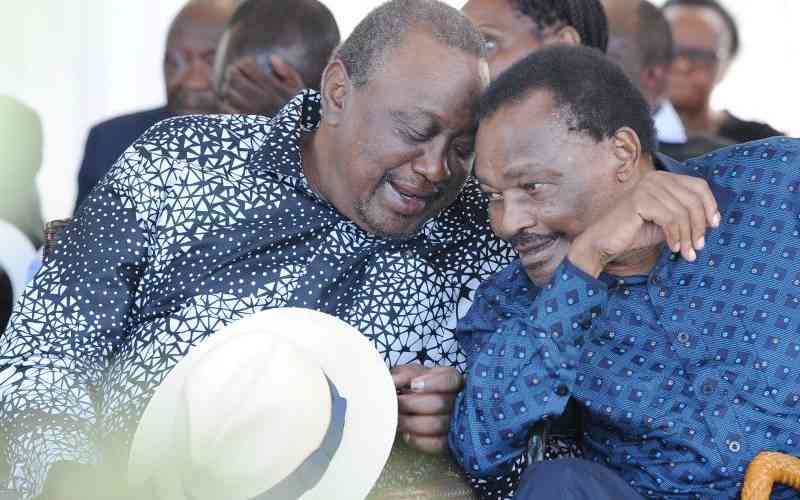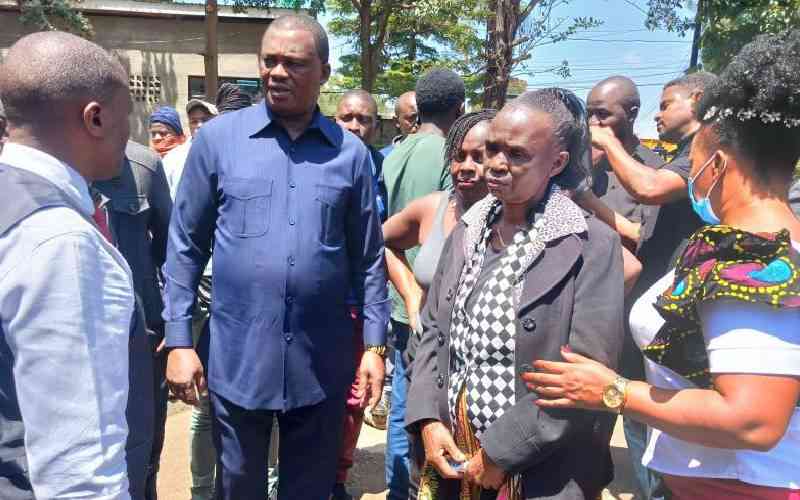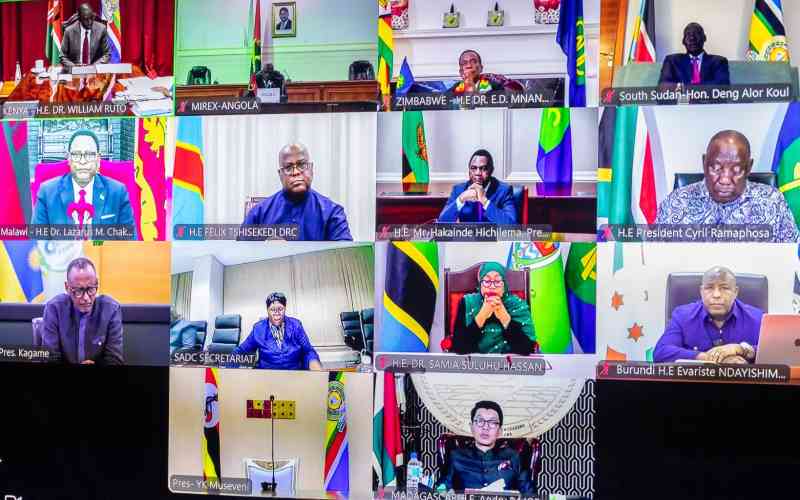By Machel Waikenda
Recently I shared a lift out of one of the government offices with a young man, who identified himself only as Bob. I struck conversation with him and he explained to me that he had visited the government department to apply for a tender.
As we waited to cross the road he told me that he was not sure what his chances of success were. He added that he is looking forward to the promise President Uhuru Kenyatta made to enhance youth-specific affirmative action on Government procurement. He even let out the secret as to whom he would vote for president in 2017 if this promise were implemented.
President Kenyatta has said that his government will allocate 30% of its procurement to young entrepreneurs so as to mainstream the participation of youth-run enterprises in economic development.
He has also promised to make the Public Procurement regime open, transparent and corruption-free in order to ensure that all deserving young entrepreneurs have equal opportunity to secure Government tenders.
But Bob had a concern; that a similar directive by retired President Mwai Kibaki to reserve 10% of government procurements for the youth had not borne fruit to his business. He says that he and hundreds of other youth were registered by the Treasury for this programme but he has not accessed any government business at all.
Media reports indicated that the programme was frustrated by government ministries that resisted the directive. The media reports also indicated that there was no legal mechanism to whip ministries into implementing the initiative.
These reports clearly bring out three facts. One, President Kenyatta can learn useful lessons from the past regime’s failure. Two, the programme needs to be well thought out so that it does not frustrate young people, who are unquestionably ambitious, hopeful and expectant of quick results. Three, the law needs to be amended so that it does not impede the success of this programme.
Once these issues have been addressed the government should publish clear guidelines on what the youth need to do to qualify for the contracts, so that they are not used as fronts by wellestablished firms.
Key players
These guidelines should also ensure that all youth enterprises, irrespective of their size, enjoy a slice and that it does not become the preserve for a select few. The guidelines should be well disseminated to the youth so that they are not taken advantage of by crooks and wayward government officials.
A reporting mechanism also needs to be developed in order to identify any government departments that may not be meeting their obligation. These reports should be available for the public to query, and to encourage the youth to participate in the programme.
Actualization of this programme will put about Sh300 billion in the hands of the youth. It will also give a new lease of life to youth-owned enterprises and accelerate their growth. Their growth will create numerous job opportunities besides giving youth renewed confidence in engaging in income-generating activity.
The youth will become key players in the economy. You can then expect them to maintain peace as they will not want any situation that will adversely affect the business environment.
But challenges still abound.
Stay informed. Subscribe to our newsletter
For instance, how will this preferential system be implemented in a devolved government? Also, will the youth be able mobilise the requisite finances to honour the contracts, some of which may involve importation and expensive machinery? How will they fare in a country where government is reputed for taking ages to pay its suppliers? What safeguards will be in place to ensure youths do not fall into the traps of rent seekers?
It is clear that relevant government departments have their work cut out to ensure this initiative is implemented in a flawless manner. Parliament, too, has laws to pass to ensure that Kenya’s main voting block is handed a lifeline.
In fact Members of Parliament should drop the call for higher salaries and focus on passing laws that have immediate benefits to the population.
Any forward looking MP should take advantage of President Kenyatta’s promise and move a Private Member’s Motion to facilitate implementation of the preferential procurement. Youths would laud such MP and be forever indebted at the ballot box.
Youth are not a Special Interest Group or Marginalised Group. They are the largest voting block and also just over 50% of the total population.
One does not need to start from scratch though. Media reports had at some point quoted former Saboti MP Eugene Wamalwa saying that he was working on a law to guarantee procurement quotas for the youth.
Changing fortunes
That is water under the bridge, but with a new face of Cabinet this initiative would best be taken up by someone else to complete the race. This would lay to rest some of the doubts Bob had about the political will and legal muscle to ensure he, and others like him get a fair shot at the very lucrative Government supplies and other jobs tenders.
Once implemented this initiative will instantly change the fortunes of the youth, and how they view their role in national development. It must, therefore, be implemented with the youth in mind, addressing all the challenges that would hinder them from participating, such as financing, quality of products and access to information.
We cannot blame the youth for any failure. We must address the structural faults that are primed into the programme to ensure failure. The 30 per cent government procurement tenders proposed for youth enterprises must succeed.
Writer is the TNA Director of Communications and Secretary of Arts and Entertainment.
Twitter @MachelWaikenda
 The Standard Group Plc is a
multi-media organization with investments in media platforms spanning newspaper
print operations, television, radio broadcasting, digital and online services. The
Standard Group is recognized as a leading multi-media house in Kenya with a key
influence in matters of national and international interest.
The Standard Group Plc is a
multi-media organization with investments in media platforms spanning newspaper
print operations, television, radio broadcasting, digital and online services. The
Standard Group is recognized as a leading multi-media house in Kenya with a key
influence in matters of national and international interest.
 The Standard Group Plc is a
multi-media organization with investments in media platforms spanning newspaper
print operations, television, radio broadcasting, digital and online services. The
Standard Group is recognized as a leading multi-media house in Kenya with a key
influence in matters of national and international interest.
The Standard Group Plc is a
multi-media organization with investments in media platforms spanning newspaper
print operations, television, radio broadcasting, digital and online services. The
Standard Group is recognized as a leading multi-media house in Kenya with a key
influence in matters of national and international interest.





